News and Multimedia Featuring DAR
-
 Integrated Care for Depression Yields Extended Benefits, Malawi Study Shows• Research Highlight
Integrated Care for Depression Yields Extended Benefits, Malawi Study Shows• Research HighlightAn NIMH-funded study showed that incorporating depression treatment into care for chronic health conditions improved well-being for both patients and their families.
-
 Intervention Reduces Likelihood of Developing Postpartum Anxiety and Depression by More Than 70%• Press Release
Intervention Reduces Likelihood of Developing Postpartum Anxiety and Depression by More Than 70%• Press ReleaseResults from a large clinical trial funded by the National Institutes of Health show that an intervention for anxiety provided to pregnant women living in Pakistan significantly reduced the likelihood of the women developing moderate-to-severe anxiety, depression, or both six weeks after birth.
-
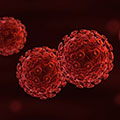 Decades of Dedication and Collaboration: Unraveling the HIV Mystery• Feature Story
Decades of Dedication and Collaboration: Unraveling the HIV Mystery• Feature StoryIn celebration of NIMHs 75th anniversary, we reflect on decades of work by the institute to understand and eradicate HIV.
-
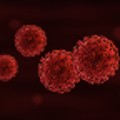 Blocking HIV Enzyme Reduces Infectivity and Slows Viral Rebound• Research Highlight
Blocking HIV Enzyme Reduces Infectivity and Slows Viral Rebound• Research HighlightIn this NIMH-funded study, researchers developed a compound that blocked an enzyme critical for forming HIV particles, which stopped the virus from correctly forming and becoming infectious.
-
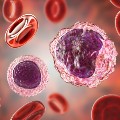 HIV Can Persist for Years in Myeloid Cells of People on Antiretroviral Therapy• Press Release
HIV Can Persist for Years in Myeloid Cells of People on Antiretroviral Therapy• Press ReleaseA subset of white blood cells, known as myeloid cells, can harbor HIV in people who have been virally suppressed for years on antiretroviral therapy, according to findings from a small study supported by the National Institutes of Health.
-
 Breaking Down Barriers to HIV Medication Access• Research Highlight
Breaking Down Barriers to HIV Medication Access• Research HighlightResearchers investigated whether home delivery of ART for a modest fee could help improve ART access and use, finding it resulted in increased viral suppression in participants compared with clinic-based medication distribution.
-
 Long-acting antiretroviral therapy suppresses HIV among people with unstable housing, mental illnesses, substance use disorder• Press Release
Long-acting antiretroviral therapy suppresses HIV among people with unstable housing, mental illnesses, substance use disorder• Press ReleaseA long-acting antiretroviral treatment given every four to eight weeks, and delivered with comprehensive support services, suppressed HIV in people who were previously not virologically suppressed.
-
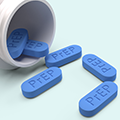 Barriers and Supports to HIV Prevention Among Young Women in Kenya• Research Highlight
Barriers and Supports to HIV Prevention Among Young Women in Kenya• Research HighlightIn a qualitative study supported by NIMH, researchers identified barriers and supports to Kenyan women’s use of PrEP, a highly effective medication to reduce HIV transmission.
-
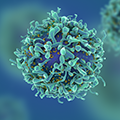 T Cells Help HIV Enter and Persist in the Brain• Research Highlight
T Cells Help HIV Enter and Persist in the Brain• Research HighlightA recent NIMH-supported study sheds light on the role of a unique set of T cells in trafficking HIV infection into the brain and mediating the virus’ persistence there.
